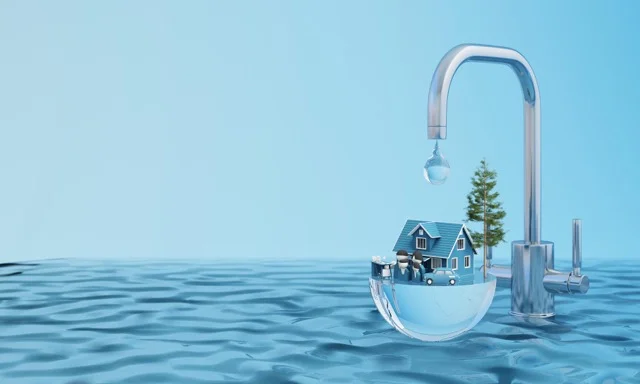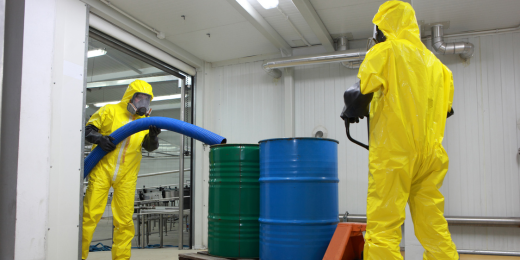7 Easy Facts About Reclaim Waste Described
7 Easy Facts About Reclaim Waste Described
Blog Article
Reclaim Waste Things To Know Before You Get This
Table of ContentsExcitement About Reclaim Waste6 Easy Facts About Reclaim Waste ExplainedMore About Reclaim WasteThe Basic Principles Of Reclaim Waste 10 Simple Techniques For Reclaim Waste
Domestic sewer waste refers to the waste and items from a household septic tank. The correct monitoring and disposal of residential sewer waste need fluid waste to be transferred to a sewage treatment plant where the proper approaches and devices are applied to purify and dispose of waste.
Industrial waste usually includes prospective threats, such as combustible products or a mix of liquid and strong waste products, and requires an advanced and in-depth disposal procedure. The disposal of commercial waste generally includes the filtration of waste before transport to make certain safe and proper disposal. Hazardous waste is produced from by-products and drainage of commercial procedures and manufacturing.
This kind of waste can not make use of the exact same sewage administration transportation or procedures as septic or commercial liquids. The commercial waste management procedure needs the inspection and testing of fluid waste prior to it undertakes the disposal procedure (liquid waste disposal). Runoff waste is the liquid waste that originates from drainage and excess stormwater in highly populated locations or cities
Overflow waste can trigger contamination and flooding if not managed appropriately. Making sure appropriate waste administration can protect against catastrophes and decrease ecological damage.
Some Ideas on Reclaim Waste You Need To Know
Contact PROS Providers today to learn about our waste management and disposal solutions and the proper means to take care of the fluid waste you generate.
(https://reclaim-waste-48112599.hubspotpagebuilder.com/reclaim-waste/expert-liquid-waste-removal-and-disposal-services-your-complete-guide)Do you recognize what happens to your water when you end, purge the toilet or drain the cleaning maker? No? Well, it's worth knowing. This supposed 'wastewater' is not just a vital source but, after treatment, will be launched to our land, rivers or the ocean. Used water from toilets, showers, baths, kitchen sinks, laundries and commercial processes is referred to as wastewater.

water made use of to cool down machinery or tidy plant and devices). Stormwater, a kind of wastewater, is overflow that moves from farming and metropolitan locations such as roofing systems, parks, yards, roads, courses and gutters into stormwater drains pipes, after rain. Stormwater streams neglected straight to neighborhood creeks or rivers, ultimately getting to the ocean.
Facts About Reclaim Waste Uncovered
In Queensland, the majority of wastewater is dealt with at sewage treatment plants. Wastewater is delivered from domestic or industrial websites through a system of drains and pump terminals, recognized as sewage reticulation, to a sewer therapy plant.
The Department of Natural Resources suggests city governments regarding managing, operating and maintaining sewage systems and treatment plants. In unsewered locations, city governments might need owners to install individual or home sewage therapy systems to deal with domestic wastewater from toilets, kitchen areas, washrooms and laundries. The Department of Natural Resources authorises using household systems when they are confirmed to be effective.
In some brand-new communities, treatment of some stormwater to eliminate litter, sand and crushed rock has started utilizing gross toxin catches. Wastewater therapy occurs in 4 phases: Gets rid of solid issue.
Makes use of small living organisms understands as micro-organisms to damage down and get rid of staying dissolved wastes and fine bits. Micro-organisms and wastes are included in the sludge.
Reclaim Waste Can Be Fun For Everyone
Nutrient elimination is not readily available at all sewer treatment plants since it needs costly specialized tools. Clear fluid effluent created after therapy may still contain disease-causing micro-organisms - liquid waste disposal.

This typically indicates wastewater has to be treated or impurities gotten rid of before it can be discharged to my blog rivers. A lot of wastewater streams into the sewage system. Under the Act, city governments carry out authorizations and licences for eco pertinent activities (Periods) entailing wastewater releases that might have a neighborhood effect. The department administers authorizations and permits to ERAs involving wastewater launches that might have a local or statewide influence.
See This Report about Reclaim Waste
Monitoring offers factual information about water top quality and can confirm that licence problems are being met. The information gotten with monitoring gives the basis for making water quality choices.
Report this page